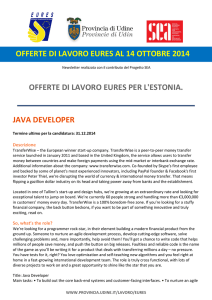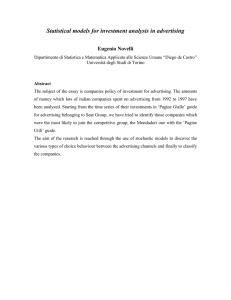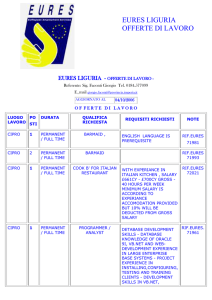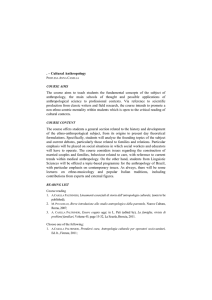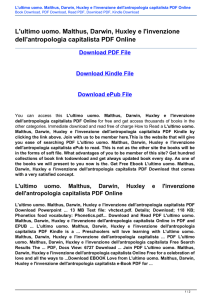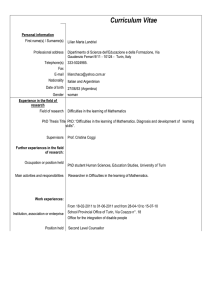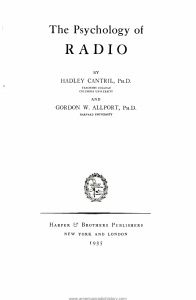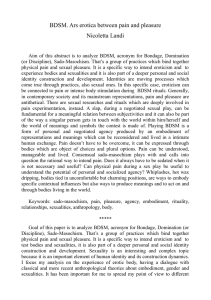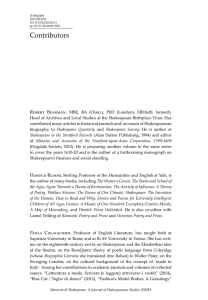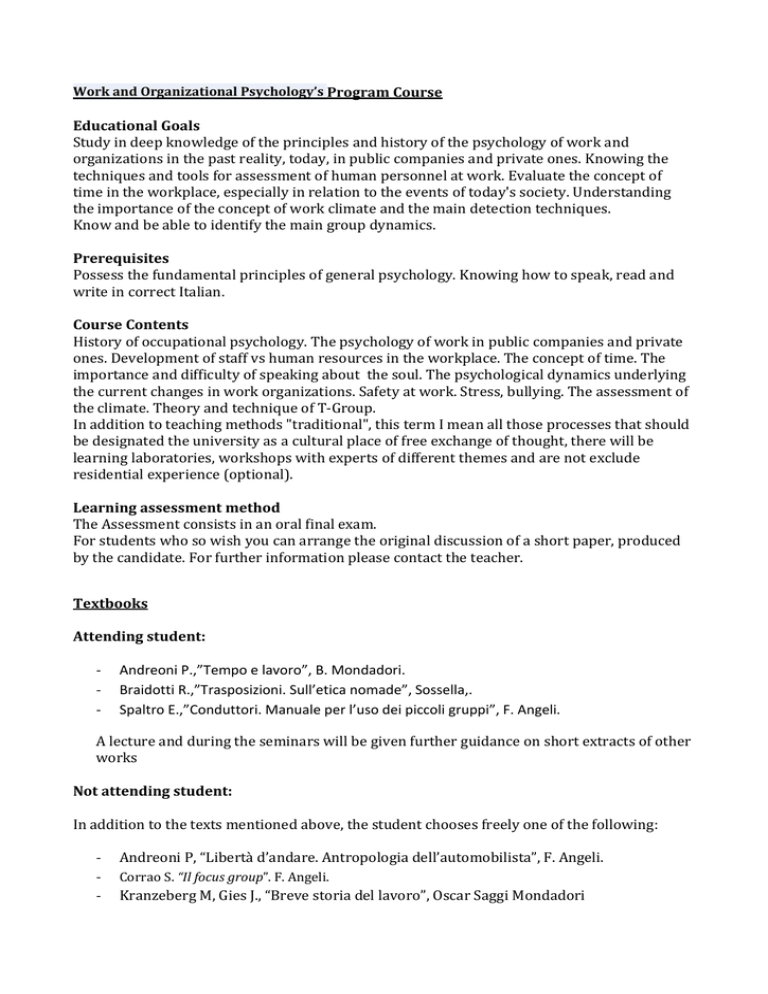
Work and Organizational Psychology’s Program Course
Educational Goals
Study in deep knowledge of the principles and history of the psychology of work and
organizations in the past reality, today, in public companies and private ones. Knowing the
techniques and tools for assessment of human personnel at work. Evaluate the concept of
time in the workplace, especially in relation to the events of today's society. Understanding
the importance of the concept of work climate and the main detection techniques.
Know and be able to identify the main group dynamics.
Prerequisites
Possess the fundamental principles of general psychology. Knowing how to speak, read and
write in correct Italian.
Course Contents
History of occupational psychology. The psychology of work in public companies and private
ones. Development of staff vs human resources in the workplace. The concept of time. The
importance and difficulty of speaking about the soul. The psychological dynamics underlying
the current changes in work organizations. Safety at work. Stress, bullying. The assessment of
the climate. Theory and technique of T-Group.
In addition to teaching methods "traditional", this term I mean all those processes that should
be designated the university as a cultural place of free exchange of thought, there will be
learning laboratories, workshops with experts of different themes and are not exclude
residential experience (optional).
Learning assessment method
The Assessment consists in an oral final exam.
For students who so wish you can arrange the original discussion of a short paper, produced
by the candidate. For further information please contact the teacher.
Textbooks
Attending student:
-
Andreoni P.,”Tempo e lavoro”, B. Mondadori.
Braidotti R.,”Trasposizioni. Sull’etica nomade”, Sossella,.
Spaltro E.,”Conduttori. Manuale per l’uso dei piccoli gruppi”, F. Angeli.
A lecture and during the seminars will be given further guidance on short extracts of other
works
Not attending student:
In addition to the texts mentioned above, the student chooses freely one of the following:
-
Andreoni P, “Libertà d’andare. Antropologia dell’automobilista”, F. Angeli.
Corrao S. “Il focus group”. F. Angeli.
Kranzeberg M, Gies J., “Breve storia del lavoro”, Oscar Saggi Mondadori

